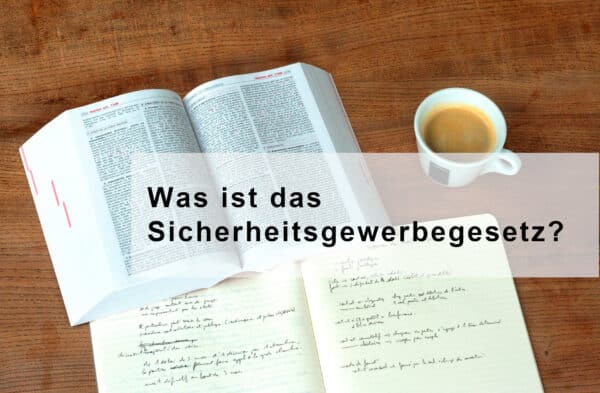Nürnberger Sicherheitskonferenz 2024 – Infos und Last-Minute-Rabattcode

Das Sicherheitsevent 2024: Die Nürnberger Sicherheitskonferenz findet in diesem Jahr zum mittlerweile 5. Mal statt. Seit 2019 – mit coronabedingter Pause – ist die Veranstaltung bei Sicherheitunternehmern, bei Beschäftigten des privaten Sicherheitsgewerbes und bei Brancheninteressierten gleichermaßen etabliert. In diesem Beitrag werfen wir einen Blick auf die Themen und Referenten der kommenden Sicherheitskonferenz, die am 10. April 2024 stattfinden wird.
Neue Location: Meistersingerhalle
The Meistersingerhalle in Nürnberg ist nicht nur ein architektonisches Juwel der 1960er Jahre, sondern auch ein bedeutender Veranstaltungsort mit einer reichen Geschichte. Benannt nach den legendären Nürnberger Meistersingern, bietet die Halle eine zentrale Lage in der Stadt und ist daher bequem mit öffentlichen Verkehrsmitteln zu erreichen. Ihr historischer Charme und die vielfältigen Nutzungsmöglichkeiten machen sie zu einem beliebten Ort für Konzerte, Tagungen und andere Veranstaltungen. Mit ihrem großzügigen Platzangebot und modernster Ausstattung ist die Meistersingerhalle die ideale Wahl auch für die 5. Ausgabe der Nürnberger Sicherheitskonferenz.
Was wird auf der Konferenz geboten?
Die Konferenz bietet wie gewohnt einen bewährten Mix aus Fachvorträgen, kleiner Messe und Möglichkeiten zur Vernetzung unter den Teilnehmenden. Die Vorträge befassen sich überwiegend mit verschiedenen Themen der öffentlichen und privaten Sicherheit. So geht es in diesem Jahr beispielsweise um Bedrohungsmanagement, kritische Infrastruktur und Frauen in der Sicherheit. Ein Vortrag befasst sich wie bei den Ausgaben zuvor mit einem „fachfremden“ Thema: In diesem Jahr wird mit „Life is a Sales Talk“ der Aspekt Marketing & Vertrieb thematisiert. Gerade für Sicherheitsunternehmer dürfte das interessant sein. Ansonsten bieten die Fachvorträge sicherlich ein breites Wissensupdate für das anwesende Publikum. Erfahrungsgemäß ist für viele Teilnehmende die Vernetzung ein zentraler Punkt der Veranstaltung. Ein Highlight hierfür ist sicherlich die After-Show-Party, die allerdings Teilnehmenden mit dem „Black Ticket“ (=höchste Preiskategorie) vorbehalten ist. Jedoch sind ausreichend Kommunikationspausen für ein Get-Together aller Interessierten während der Veranstaltung eingeplant. Je nach Ticketkategorie werden außerdem Soft-Drinks, ein Mittagessen, Mitschriften der Vorträge, Gutscheine und Rabatte für Kurse und Publikationen des Veranstalters sowie weitere Benefits angeboten. Sicherheitsmitarbeitende, die sich weiterbilden möchten oder nach einer neuen beruflichen Herausforderung suchen, bietet die Teilnahme möglicherweise eine gute Gelegenheit diese Vorhaben anzugehen.
Das sind die Themen der Vorträge:
Fünf Vortragende referieren jeweils ca. 45 Minuten zu einem Thema und stehen für Fragen des Publikums zur Verfügung.
- Manuel Heinemann startet mit dem Thema „Bedrohungsmanagement im Sicherheitssektor“. Der Vortrag wird sich mit der Verbindung zwischen Bedrohungsmanagement als Disziplin und den Aufgaben des Sicherheitsgewerbes beschäftigen, insbesondere mit dem Ziel, Gewalt zu verhindern. Dabei wird der Weg von einer bloßen Koexistenz hin zu einer gemeinsamen Entwicklung von Bedrohungsmanagement im Sicherheitsgewerbe aufgezeigt. Der Vortrag wird die Chancen dieses Ansatzes sowie mögliche Projektbeispiele beleuchten. Es werden die Grundlagen des Bedrohungsmanagements skizziert und mit den Herausforderungen des Sicherheitsgewerbes kombiniert. Dabei werden theoretische Konstrukte erläutert und mit praxisnahen Beispielen untermauert.
- Holger Berens folgt mit dem Thema „Umsetzung NIS 2.0 und KRITIS-Dachgesetz„. Der Vortrag wird sich mit der Umsetzung der NIS 2 Richtlinie und der CER Richtlinie im deutschen nationalen Recht befassen. Dabei wird praktische Hilfestellung für Unternehmen geboten, insbesondere bezüglich Stolperfallen und Missverständnissen bei der Umsetzung. Es wird erläutert, wie die Richtlinien in den betrieblichen Ablauf integriert werden können, um die Sicherheit kritischer Infrastrukturen zu gewährleisten. Der Fokus liegt darauf, praxisnahe Lösungen für die Umsetzung der Richtlinien zu präsentieren und so Unternehmen bei der Erfüllung ihrer rechtlichen Anforderungen zu unterstützen.
- Carla-Marie Schmieder setzt die Vortragsreihe am Vormittag mit dem Thema „Warum so wenige Frauen in der Sicherheit zu finden sind“ fort. Der Vortrag wird sich mit der Frage befassen, warum Frauen in der privaten Sicherheitsbranche unterrepräsentiert sind. Dabei wird ein kleiner Rückblick auf die Ursprünge der Sicherheitsbranche in Deutschland gegeben. Ein Schwerpunkt liegt auf der Motivation von Frauen, in der Sicherheitsbranche zu arbeiten. Es wird auch aufgezeigt, wie die (mangelnde) Sicherheit am Arbeitsplatz, private Risiken und steigende Kosten im Privatleben Frauen möglicherweise von einer Sicherheitskarriere abhalten. Des Weiteren wird beleuchtet, dass attraktive Unternehmen nicht immer attraktive Jobangebote in der Sicherheit bieten. Abschließend wird erläutert, wie langfristige Ziele geschaffen werden können, um eine sichere Zukunft in der Sicherheitsbranche für Frauen zu gewährleisten.
- Zeljko Andrejevic leitet mit seinem Vortrag mit dem Titel „Life is a Sales Talk – Neukunden mit Sicherheit“ den Nachmittag ein. Der Vortrag richtet sich an Sicherheitsunternehmer und behandelt den Vertrieb, insbesondere in der digitalen Welt. Es wird aufgezeigt, wie Vertriebsstrategien angepasst werden können, um in der digitalen Welt erfolgreich zu sein und neue Kunden zu gewinnen. Dabei wird betont, wie Kommunikation, Kundenbindung sowie Authentizität und Transparenz im Vertriebsprozess eine zentrale Rolle spielen. Es werden auch Tools und Technologien vorgestellt, die den Vertrieb in der Sicherheitsbranche unterstützen können, um eine sichere und langfristige Kundenbeziehung aufzubauen.
- Torsten Malt schließt die Vortragsreihe mit seinem Referat zur „Sicherheit im Verbund„. Der Vortrag beleuchtet am Beispiel der S‑Bahn München sowie dem zukünftigen Schutz kritischer Infrastrukturen, wie Sicherheit in einem Konzernverbund und in Zusammenarbeit mit Sicherheitsbehörden funktionieren kann. Es werden die Erfolgsfaktoren für eine effektive Zusammenarbeit und Koordination zwischen verschiedenen Sicherheitsakteuren aufgezeigt. Dabei werden auch die spezifischen Herausforderungen diskutiert, die sich bei der Sicherung kritischer Infrastrukturen ergeben können. Der Vortrag bietet Einblicke in die praktische Umsetzung von Sicherheitskonzepten im Verbund und zeigt auf, wie diese Konzepte weiterentwickelt werden können, um zukünftige Sicherheitsanforderungen zu erfüllen.
Sicherheit 2030 – Podiumsdiskussion
Nach Abschluss der Vorträge findet eine Podiumsdiskussion statt. Unter dem Motto „Sicherheit 2030“ geht es um Herausforderungen, Lösungsansätze und Zukunftsperspektiven. Hierzu diskutieren die Referenten und ausgewählte Teilnehmer über die Zukunft der privaten Sicherheit. Dabei werden Herausforderungen wie die Digitalisierung und die Komplexität der Bedrohungen ebenso beleuchtet wie konkrete Schritte zur Problemlösung und die Weiterentwicklung der privaten Sicherheitsbranche. Die Diskussion bietet Einblicke und Impulse für eine zukunftsorientierte Ausrichtung der Sicherheitsunternehmen, der Politik und der Branche insgesamt.
Last-Minute-Tickets: Jetzt Rabatt sichern!
Alle Leser des Sachkunde-Blogs sowie Mitglieder der Facebook-Gruppe „Mit Sicherheit erfolgreich“ erhalten 10% Discount auf die regulären Ticketpreise.
Gutscheincode: SIKO10
So funktioniert die Einlösung: Wählen Sie das gewünschte Ticket unter https://www.nuernberger-sicherheitskonferenz.de/#tickets und geben Sie anschließend den Code an der Kasse ein!
Veranstaltungsvideo (Preview) und weitere Informationen
Viele weitere Infos zur Veranstaltung finden Sie unter www.nuernberger-sicherheitskonferenz.de, im Flyer zur Veranstaltung (Programmheft) sowie im nachfolgenden Video zur 5. Nürnberger Sicherheitskonferenz:









